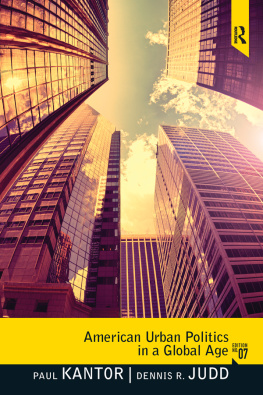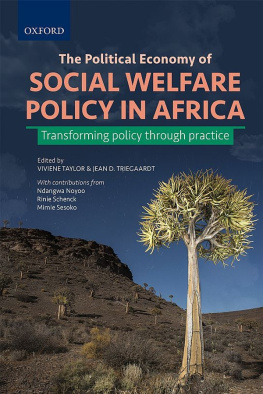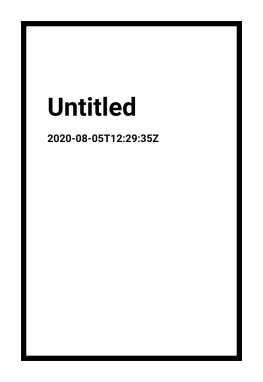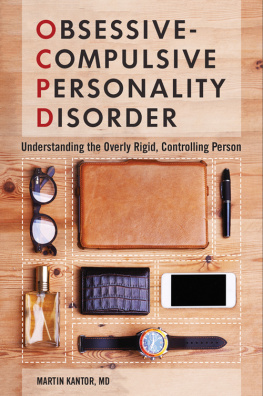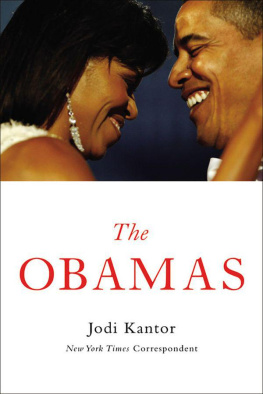The Dependent City Revisited
The Dependent City Revisited
The Political Economy of Urban Development and Social Policy
Paul Kantor
Fordham University
First published 1995, 1988 by Westview Press, Inc.
Published 2019 by Routledge
52 Vanderbilt Avenue, New York, NY 10017
2 Park Square, Milton Park, Abingdon, Oxon OX14 4RN
Routledge is an imprint of the Taylor & Francis Group, an informa business
Copyright 1995, 1988 Taylor & Francis
All rights reserved. No part of this book may be reprinted or reproduced or utilised in any form or by any electronic, mechanical, or other means, now known or hereafter invented, including photocopying and recording, or in any information storage or retrieval system, without permission in writing from the publishers.
Notice:
Product or corporate names may be trademarks or registered trademarks, and are used only for identification and explanation without intent to infringe.
Library of Congress Cataloging-in-Publication Data
Kantor, Paul, 1942
The dependent city revisited: the political economy of urban
development and social policy / Paul Kantor.
p. cm.
First published in 1988 by Scott, Foresman/Little, Brown College
Division ... as The dependent city: the changing political economy
of urban AmericaVerso t.p.
Includes bibliographical references and index.
ISBN 0-8133-1903-X. ISBN 0-8133-1904-8 (pbk.)
1. Urban policyUnited StatesHistory. 2. Federal-city
relationsUnited StatesHistory. 3. Urban economics. I. Kantor,
Paul, 1942 The dependent city. II. Title.
HT123.K36 1995
307.76'0973dc20 94-24017
CIP
ISBN 13: 978-0-367-29122-8 (hbk)
In memory of my father, Anthony Kantor
Since the publication of The Dependent City in 1988, urban politics in the United States has changed at least as much as urban political theory. The Dependent City Revisited is a response to both of these things. In chapters that are entirely new or significantly revised, I seek to provide a fresh focus on the politics of urban social and economic development. I also introduce the reader to better ways of making sense of what is happening to our nation's cities and suburbs through new theoretical insights.
Events during recent years have deepened the economic dependency of urban America. The continued restructuring of the global and national economies has unleashed new and more intense economic competition among cities, states, and regions in the United States. This form of dependency on private-sector forces has created new challenges for city and suburb in rendering equitable as well as lasting solutions to their most-pressing community problems. At the same time, federal, state, and local officials have experimented with new ways of coping with the social and political consequences of this dependency. Unfortunately, many of these efforts have been inadequate to the task or have even intensified the plight of cities. For instance, the Reagan-Bush urban policies that sought to limit federal regulation of urban affairs played themselves out during the 1990s. It has now been revealed that homelessness, racial segregation, rising local tax burdens, unemployment, and other city and suburban ills become worse under a federal strategy of limited regulation. The Clinton administration and state and local political leaders have yet to find a compelling new urban strategy. The Dependent City Revisited describes this experience, relates it to the past, and offers some new ways to achieve better urban social and economic development. Most important, I try to demonstrate that the worst urban miseries in the United States are mainly matters of political choice: They necessitate addressing the reality of urban dependency through wise public policy or abandoning our communities to the adverse social consequences of such dependency. This interventionist suggestion for managing our urban dilemma may seem out of fashion during this time of antigovernment sentiment and conservative political tide. Yet I propose this response because I am inclined to believe that good urban policy in America ultimately will spring from recognition by citizens of what policies make them better off rather than from political fantasy and ideological fad.
The events of recent years also have moved political scientists to reassess urban political theory. New theoretical developments, however, have not always fulfilled expectations. Increasing recognition by political scientists of the role of economic forces in the dynamics of city governance sometimes has been interpreted to mean that politics matters less. Indeed, recent debate sometimes has taken on the character of a turf war over the importance of politics versus economics. I believe that the result of this kind of debate is unproductive and intellectually arid. Thus, in The Dependent City Revisited I try to show that the notion of separate economic and political "worlds" breaks down quickly in probing urban government and policy and to demonstrate that the behavior of political decisionmakers, regimes, and other so-called political objects is best understood within their specific socioeconomic contexts. By the same token, this book reveals that what appears to be a purely economic activity is usually, on closer inspection, a product of political construction. Especially in postindustrial America the behavior of business organizations and markets is invariably linked to public policies and governmental choices. I hope that this book will make these interdependencies more visible and contribute to social theory.
I am indebted to many colleagues and friends for support and assistance in preparing this book. Yet it would be unfair to mention only some of them, and I would regret failing to mention everyone. Thus, I would like to note only some people who might otherwise think they were not important to me in completing this project. I thank my graduate and undergraduate students in my urban politics and American public policy classes whose comments, questions, and well-thought-out criticisms about my ideas were invaluable sources of inspiration. I also thank several graduate students in the Political Science Department at Fordham University who assisted me in numerous boring research and clerical tasks. They include Richard Boyd, Ken DeLuca, Heather Wright-Feinsilver, and Jennifer A. March. Not least, my debt is owed to my wife, Anna, and my daughter, Elizabeth. Anna's loving support and encouragement affect all my work more than she may realize. Elizabeth's zesty presence and bright outlook often made me keep many things in better perspective. The responsibility for what follows is mine alone, however.
Paul Kantor
1
The Dependent City and Urban Politics
"It was the one time Bob Wright seemed really annoyed with me," New York City's mayor, Edward I. Koch, later admitted. At 6:00 AM on a June morning in 1987 the mayor had jolted Robert C. Wright, the president of the National Broad-casting Company (NBC), out of his bed with a telephone call. The reason: deep fears at city hall. Mayoral aides had become convinced that the city was losing the battle to keep NBC from leaving New York, so Mayor Koch called to persuade Wright to consider some parcels of city real estate for the network's headquarters.


